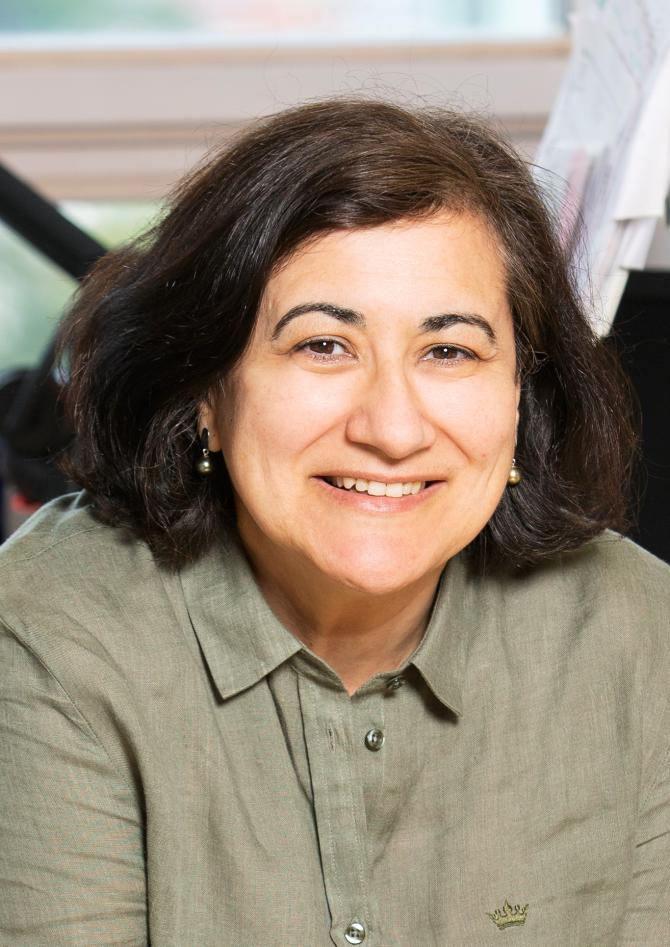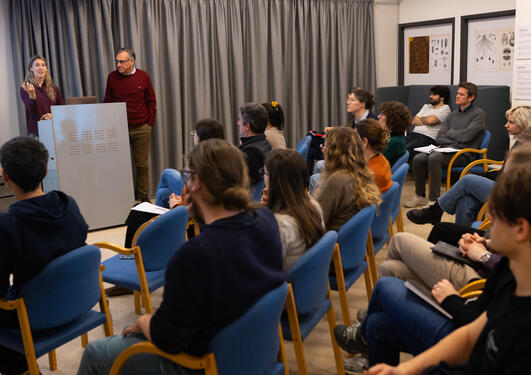Prof. Aurora Martinez, UiB
Prof. Aurora Martinez, from the Department of Biomedicine at UiB, will present: "Regulatory mechanisms of dopamine synthesis: structural basis and pathogenic insights"
Hovedinnhold

Tyrosine hydroxylase (TH) is a member of the evolutionarily related tetrahydrobiopterin (BH4)-dependent aromatic amino acid hydroxylases. TH is the rate-limiting enzyme for dopamine (DA) biosynthesis, and its dysfunction leads to DA deficiency and parkinsonisms, a set of neurological disorders that cause motor impairment. Key regulatory mechanisms include inhibition by catecholamines, reactivation by S40 phosphorylation, and regulation by L-tyrosine and BH4 levels. Protein-protein interactions of TH with various regulatory proteins are also crucial. Cryo-EM studies reveal the mechanisms by which DA binding blocks the active site, while S40 phosphorylation reactivates it, maintaining DA and TH homeostasis. Additionally, the co-chaperone DNAJC12, along with the scaffold protein 14-3-3, are important for maintaining TH stability and regulated dopamine synthesis. Pathogenic variants in TH, as well as in DNAJC12 or 14-3-3, which may affect these protein interactions, lead to pediatric parkinsonisms. A structural understanding of these regulatory mechanisms and of the effects of pathogenic variants is essential for developing new therapies for parkinsonisms, as current treatments like L-Dopa are insufficient for severe cases. Biophysical and cellular screens have identified potential therapeutic compounds targeting these pathways.

